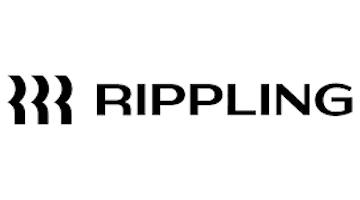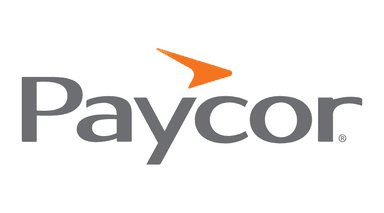Managing your human resources (HR) needs can be challenging, especially as your business grows. While there are many types of HR solutions available, one option is to use HR software. This type of software can streamline your HR functions, increase employee satisfaction and help you maintain legal compliance. To help you identify the right HR software for your business, I’ve conducted hours of research to identify some of the best solutions on the market.
What is Human Resources (HR) software?
Human resources software is a cloud-based solution that gives businesses a central hub for managing their HR needs. The software offers services for employee recruitment and onboarding, benefits administration, time tracking, time off management, payroll processing, payroll tax administration, performance management, and compliance support. It also comes with varying levels of support and assistance.
Best HR Software
- BambooHR:Best for Employee Onboarding
- Bambee:Best for Risk Mitigation
- Gusto HR Software:Best for Payroll
- Rippling HR:Best for Ease of Use
- Paycor HR:Best for Analytics
- Insperity HR:Best for SMBs
- ADP HR:Best for Benefits Administration
- Paychex Flex:Best for Remote Teams
- TriNet HR:Best for Startups
- Papaya Global HR:Best for International Businesses
Our Top Picks for 2024 | BambooHR | Bambee | Gusto HR Software | Rippling HR | Paycor HR | Insperity HR | ADP HR | Paychex Flex | TriNet HR | Papaya Global HR |
|---|---|---|---|---|---|---|---|---|---|---|
Best for | Employee Onboarding | Risk Mitigation | Payroll | Ease of Use | Analytics | Small & Midsize Businesses | Benefits Administration | Remote Teams | Startups | International Businesses |
Starting Price | Custom | $99 per month (plus a setup fee) | $40 per month (plus $6 per employee per month) | $8 per employee per month | Custom | Custom | Custom | $39 per month (plus $5 per employee per month) | $8 per employee per month | $25 per employee per month |
Payroll | Optional add-on | Optional add-on | Included | Optional add-on | Included | Included | Included | Included | Optional add-on | Included |
Third-party Integrations | Yes (plus open API) | Yes | Yes | Yes (plus open API) | Yes (plus open API) | Yes | Yes (plus open API) | Yes | Yes | Yes (plus custom API) |
Mobile Apps | Yes | No | Yes | Yes | Yes | Yes | Yes | Yes | Yes | Yes |
Rating |
The best picks for HR software
Here are some of the best HR software options available.
Our Reviews

BambooHRBest for Employee Onboarding
Pros & Cons
Our Review for BambooHR
BambooHR stands out as a top choice for employee onboarding. Its intuitive interface streamlines the onboarding process, allowing HR teams to efficiently manage tasks such as document collection, training schedules and welcome packets. BambooHR’s customizable workflows adapt to each organization’s unique onboarding requirements, ensuring a tailored and seamless experience for new hires. The software’s automated notifications and reminders reduce administrative burdens, improving communication and compliance throughout the onboarding journey.
Additionally, BambooHR’s robust reporting and analytics tools provide valuable insights into onboarding effectiveness, helping businesses optimize their processes and enhance the overall employee experience. With its user-friendly design and data-driven approach, BambooHR remains a trusted solution for effective employee onboarding in diverse industries.

BambeeBest for Risk Mitigation
Pros & Cons
Our Review for Bambee
Bambee is our choice as the best software for HR professionals and business leaders seeking effective risk mitigation. With clear and upfront pricing displayed on its website, Bambee offers a cost-effective solution without hidden fees. Each company is assigned a dedicated HR manager, essentially precluding your need for internal HR staff. Your representative can provide personalized guidance and support on things like HR audits, policies, corrective action and document storage. You can leverage the company’s expertise to navigate sensitive issues effectively. Your HR manager is easily contacted directly through the Bambee platform.
Bambee’s user-friendly software and automated HR processes streamline workflows, saving time and reducing human error. Overall, Bambee’s comprehensive suite of services makes it an excellent choice for businesses looking to proactively manage HR risks while receiving expert guidance and support.
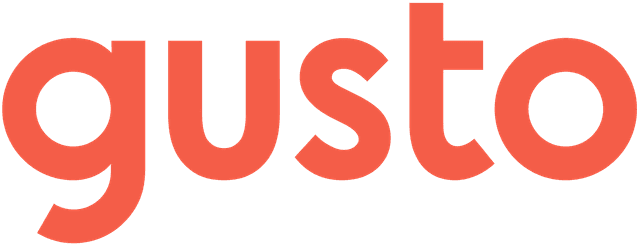
Gusto HR SoftwareBest for Payroll
Pros & Cons
Our Review for Gusto HR Software
Gusto is a top HR software solution, and its payroll management helps make it shine. Every employee plan automatically includes essential payroll services, which is something that many competitors offer only as an optional add-on. Gusto automates time-consuming tasks, allowing you to run payroll in minutes – with no extra fees for additional runs. Seamless integrations with popular timekeeping and accounting tools further streamline the process. Gusto also provides comprehensive employee self-service options, empowering staff to access pay stubs, tax documents and benefits information.
Gusto’s strength lies in its commitment to accuracy and compliance. Its software automatically calculates taxes and deductions, ensuring peace of mind and freeing you from the burden of manual calculations. Additionally, Gusto stays abreast of ever-changing tax regulations, keeping your business compliant across all 50 states. This combination of automation, ease of use and built-in compliance makes Gusto a standout solution for payroll needs.
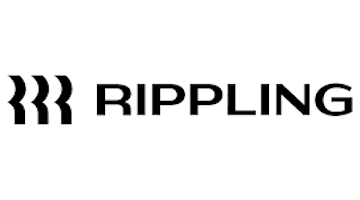
Rippling HRBest for Ease of Use
Pros & Cons
Our Review for Rippling HR
Rippling stands out as the best HR software for ease of use due to its robust automation capabilities, seamless integration with IT and finance management features, and scalable plans for both professional employer organization (PEO) and non-PEO options. Its customizable workflows streamline HR processes, offering efficiency and flexibility tailored to diverse organizational needs. Rippling’s user-friendly interface simplifies complex tasks, making it accessible and intuitive for HR professionals and business leaders alike.
Additionally, its comprehensive suite of tools extends beyond traditional HR services, enhancing productivity across departments while maintaining a focus on user experience and ease of navigation. These features collectively position Rippling as a top choice for businesses seeking a versatile, user-centric HR solution that prioritizes automation, integration, scalability and customizable workflows.
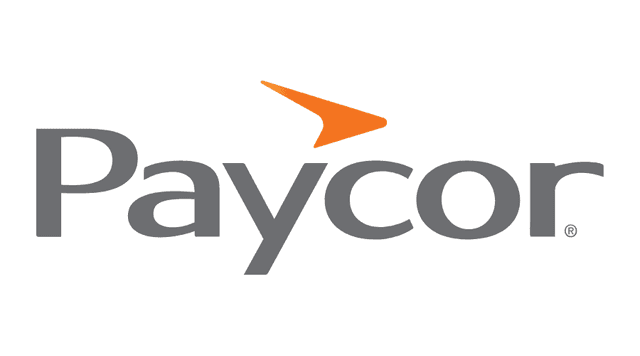
Paycor HRBest for Analytics
Pros & Cons
Our Review for Paycor HR
For businesses seeking actionable insights, Paycor stands out as a top contender in HR software. Its analytics suite goes beyond basic reporting, offering prebuilt dashboards with hundreds of metrics on employee demographics, turnover and compensation. These metrics are easily digestible, empowering HR professionals to identify trends and answer critical questions about their workforce.
Paycor’s strength lies in its ability to transform complex data into clear, actionable intelligence. Predictive analytics helps you anticipate future trends, like potential flight risks or skills gaps. This empowers data-driven decision-making to optimize your talent pipeline and boost employee engagement. With Paycor, HR becomes a strategic business partner, leveraging data to improve workforce performance and demonstrate the value it brings to the organization.

Insperity HRBest for SMBs
Pros & Cons
Our Review for Insperity HR
Insperity offers a comprehensive solution, moving beyond basic payroll. The platform integrates benefits administration with user-friendly tools for employee enrollment and management. This frees HR professionals to focus on attracting talent. Integration with timekeeping systems ensures accurate payroll and compliance across all 50 states. But Insperity doesn’t stop there. The platform includes applicant tracking, employee onboarding, performance management features and hundreds of training courses, empowering SMBs to build a strong workforce.
Inspereity’s team of HR specialists acts as a trusted advisor, providing compliance and risk mitigation strategies. This allows SMBs to confidently navigate HR complexities and focus on achieving growth goals.
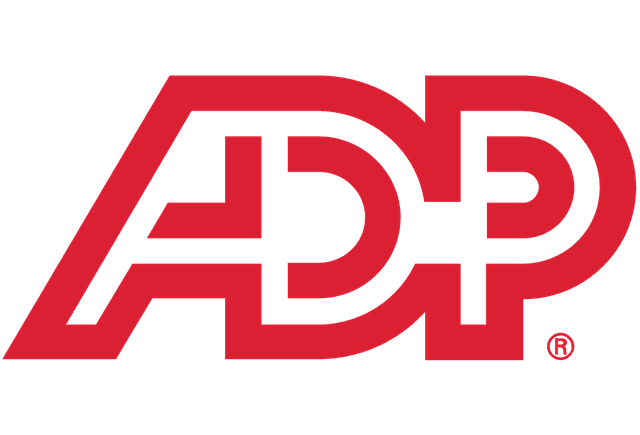
ADP HRBest for Benefits Administration
Pros & Cons
Our Review for ADP HR
ADP is a powerful solution, especially for HR professionals who are overwhelmed by benefits administration complexities. Its platform streamlines the entire benefits administration process, from open enrollment to ongoing management. It also empowers employees with a user-friendly mobile app and website for benefit selection and management. We like how this self-service approach reduces the administrative burden on HR teams, freeing them to focus on strategic initiatives. Additionally, ADP offers decision-support tools that guide employees toward the most suitable plans based on their individual needs and situations.
ADP also ensures compliance with complex regulations such as the Affordable Care Act (ACA). Its automated system handles eligibility verification, contribution calculations and tax reporting. We like this, as it minimizes the risk of errors and penalties. This combination of user-centric design, robust functionality and built-in compliance makes ADP a compelling choice for businesses seeking a streamlined and efficient benefits administration solution.

Paychex FlexBest for Remote Teams
Pros & Cons
Our Review for Paychex Flex
With its focus on accessibility and self-service tools, Paychex Flex is a top HR solution for employers with remote or dispersed teams. The cloud-based platform offers anytime, anywhere access for both HR administrators and employees. We believe this functionality empowers remote workers to easily manage tasks like requesting time off, checking pay stubs and accessing company benefits information – all from their desktops or mobile devices. This not only reduces administrative burdens on HR teams, but also fosters a sense of autonomy and convenience for your remote workforce.
Paychex Flex integrates seamlessly with popular timekeeping and collaboration tools. This eliminates data entry errors and streamlines payroll processing, even for geographically dispersed teams. Additionally, robust reporting tools provide HR professionals with real-time insights into key metrics, allowing them to make data-driven decisions that improve remote team performance and engagement. With its emphasis on mobile access, self-service functionality and seamless integrations, Paychex Flex stands out as a strong contender for managing a geographically distributed workforce.

TriNet HRBest for Startups
Pros & Cons
Our Review for TriNet HR
TriNet’s HR platform is a user-friendly and affordable HR solution for startups that need to navigate the complexities of human resources for the first time. TriNet’s HR software streamlines core HR functions like payroll, benefits administration and onboarding, allowing young companies to focus on growth. The platform shines with an intuitive interface. Setting up and managing the system requires minimal technical expertise, making it ideal for lean startup teams. Affordability is another key advantage. TriNet’s HR platform offers a base plan with core functionalities at a competitive price per employee, allowing startups to manage their costs effectively.
We were impressed with how the platform integrates seamlessly with popular accounting and collaboration tools. This eliminates data silos and ensures a smooth workflow as the startup scales. Additionally, it offers built-in compliance features and access to HR resources, mitigating potential risks for young companies. This combination of affordability, ease of use and integrated functionalities makes TriNet’s HR software a compelling choice for startups.

Papaya Global HRBest for International Businesses
Pros & Cons
Our Review for Papaya Global HR
Papaya Global streamlines the complexities of managing a globally dispersed workforce. Instead of simply providing HR software, Papaya Global acts as an employer of record (EOR) – handling payroll, taxes and compliance for employees in more than 160 countries. This eliminates the need for local subsidiaries, saving businesses significant time and resources. Additionally, Papaya Global offers a user-friendly interface that facilitates onboarding, managing benefits and running payroll for an international team.
The platform integrates seamlessly with popular timekeeping and expense management tools. This ensures streamlined workflows and minimizes the risk of errors associated with manual data entry across different locations. With its expertise in global compliance and its focus on centralized management, Papaya Global empowers global businesses to navigate complex HR landscapes with confidence, allowing them to focus on building a world-class team.
How much does HR software cost?
HR software is typically charged based on how many employees you have. Costs generally range between $5 and $20 per employee per month. However, the total cost of your software also depends on what features and services you need. For example, services like payroll processing, benefits administration and performance management tend to be optional with additional associated fees. Other potential costs to look out for are those for setting up the software and monthly base fees.
HR software plans can be offered on a monthly, annual or multiyear contract, but longer contracts often guarantee better rates. Free trials are somewhat uncommon in this industry, but you don’t need to lock in a long contract rate without seeing the platform, as most HR software vendors offer a free demo.
How to choose HR software
Whether you are a new business looking for first-time HR software or a seasoned professional looking to switch HR providers, there are a few steps you can take to ensure you choose the right HR software.
Identify your HR software needs. Each HR solution excels in its own way, making it better suited for specific types of businesses. To ensure you find the right one, you first need to assess what your needs are. Determine the features you need, what processes you want to automate, how tech-savvy your employees are, the platforms you need it to integrate with and the level of customer support required.
Establish an HR software budget. How much can you reasonably spend on HR software? HR software is typically charged per employee, so consider your number of employees first. This gives you a rough idea of your budget. HR software may seem expensive at first, but consider the money you could be saving by increasing process efficiency, reducing errors and automating administration functions.
Perform HR software market research. Research the top HR software vendors to see what options are available. Look for providers that are within your budget and offer the features and support you need. Some HR solutions are geared toward businesses of certain sizes or industries, so make note of that as well.
Conduct software demos. When you’ve narrowed your search to a few top providers, contact them to set up guided demos. This will give you a chance to see the platform firsthand and ask any remaining questions you may have about the software.
Compare and choose your software. After attending product demonstrations and getting your questions answered, compare your top picks. Compare their features, pricing, contracts, usability, implementation and customer support. When it comes to pricing, don’t just compare base plans. Since each vendor varies in how it bundles its features, be sure you are accounting for add-on features you will need to pay for as well.
Methodology
To find the best HR software on the market, I started by researching and analyzing dozens of potential HR solutions. I discovered who the key players are through industry experience and market research, and then I did a deep dive on each HR software provider. I looked at company websites, competitor comparison pages, the Better Business Bureau (BBB), and customer reviews.
Through this research, I was able to examine and compare pricing, contract requirements, HR services and limitations, payroll processing capabilities, benefits administration, compliance assistance, and customer support. I also participated in guided tours and product demos to gain firsthand experience with each platform’s functionality and ease of use.
HR Software FAQ
How long does it take to implement HR software?
The time needed to implement HR software varies based on factors like software complexity and organization size. Off-the-shelf solutions typically take a few weeks to months, including setup, data migration and training. Customized or integrated systems may extend the timeline due to development and testing. Larger organizations and data readiness can also contribute to longer implementation periods. Vendor support and collaboration are crucial for efficient implementation, with timelines ranging from weeks to several months depending on specific needs and processes.
Does HR software come with a mobile app?
Yes. Most of the HR software that I researched and reviewed comes with iOS and Android mobile apps. Although mobile apps tend to be somewhat limited in terms of administrative functions, they typically have a good amount of self-service features for employees and managers to access and modify their HR functions on the go. Most HR software is also mobile-friendly and can be accessed from devices connected to the internet.
How do you know if you need HR software?
Very small businesses with just a few employees can often get away with manual HR management. However, once your organization starts growing, you might find that your HR functions need to be automated. It may be time to invest in HR software if any of the following rings true: Your organization is quickly scaling, your HR processes take up too much time, you are making mistakes on HR tasks, you want to automate your HR processes or you want to make data-driven business decisions.
Can HR software scale with your business?
Yes, the best HR software can scale with your business. Many HR providers offer tiered service plans and optional add-on features so employers can customize solutions to meet their growing needs. Some HR providers even offer professional employer organization (PEO) and HR outsourcing (HRO) services if employers should need them.
It’s important to note that some HR software providers gear their services toward small businesses specifically, so you may want to inquire about employee maximums if you anticipate a rapid and robust expansion in headcount.
Can HR software integrate with other platforms?
Yes. HR software can integrate with other business solutions. Some HR software has hundreds of product integrations, while others additionally offer an open API so you can create your own. If you plan on integrating your software with other platforms, be sure to ask about integrations during your product demonstration.



